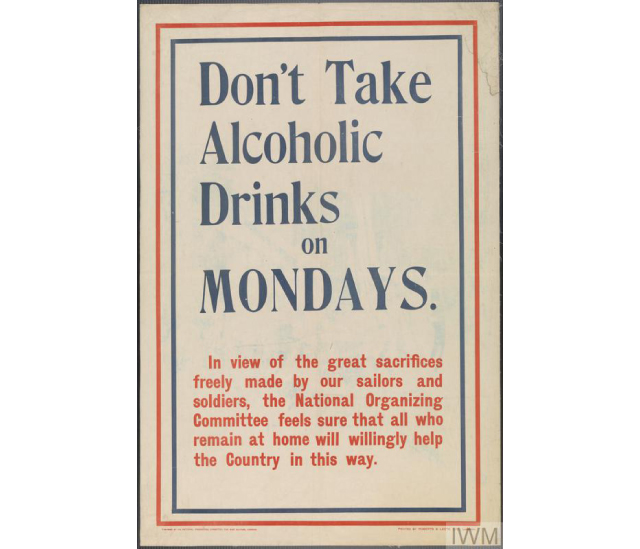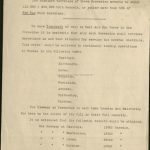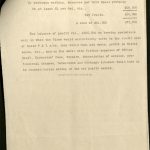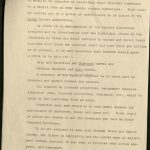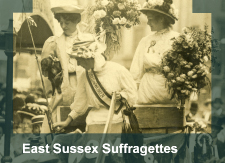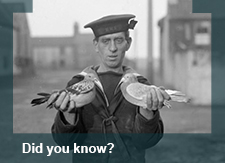The outbreak of the First World War brought about many changes to life on the home front, including a long-lasting impact on the serving of alcoholic beverages.
Public houses and beer had been a staple of British social and socialising life in the years before the First World War. During the Victorian era many pubs had been opened alongside worker accommodation, and were partially owned by the local factories, to provide convenient entertainment for the workers and also to recoup money previously paid out as wages.
However, following the start of the war in August 1914, dramatic changes would begin to affect breweries, pubs, and punters across Britain.
Licensing Laws
In 1915, the then Minister for Munitions, Lloyd George, declared that; “We are fighting Germans, Austrians and drink, and so far as I can see the greatest of these deadly foes is drink”. There had been ongoing fears within Britain that over indulgence with alcohol by factory and munition workers would cost Britain productivity and starve the army abroad of ammunition. In 1914, the introduction of the Defence of the Realm Act (DORA) and its subsequent variations had sought to address some of these concerns.
Among the long-reaching powers granted to the government by DORA, was strict new legislation regarding the selling and consuming of alcohol.
Licensing hours, the time when public houses were permitted to sell alcohol, had become more restrictive following the Intoxicating Liquor (Licensing) Bill of 1872. With the introduction of DORA they became stricter still. New laws meant that pubs were forced to close during the middle of the day to prevent all day drinking. The new hours saw establishments open initially between midday and 2:30pm, before staying closed until 6:30pm when they would then stay open until 9:30pm. Failure to observe these strict licensing hours saw landlords lose their licenses and pubs being forced to shut down. These enforced hours stayed in law until the Licensing Act of 1988.
Further to these licensing laws, additional restrictions were brought in regarding alcohol. Beer in particular was ordered to be ‘watered down‘ to make it less potent and reduce drunkenness. Additionally it became illegal to buy drinks for other people, thus ending the tradition of buying alcohol in rounds. And the impact of the First World War on the sale of alcohol did not stop there.
Breweries
The outbreak of the First World War brought about an increasing demand for men to join the army. In the early months of the war, the British Army was of negligible size and desperately needed immediate reinforcement.
In East Sussex, local breweries, such as Harveys in Lewes, recognised that men who worked for them would begin to leave in order to join the army. As a result they began the process of combining their individual delivery staff into a collective pool for beer deliveries.
- Scheme for pooling Sussex Breweries – Document courtesy of The Keep Archives (BBR 1/1/7)
- Scheme for pooling Sussex Breweries – Document courtesy of The Keep Archives (BBR 1/1/7)
- Scheme for pooling Sussex Breweries – Document courtesy of The Keep Archives (BBR 1/1/7)
The plan for combining staff not only freed up men to join the army, it also allowed them to combine resources and avoid individual costs and losses.
Controls on alcohol continued throughout the war and many of the powers granted to the government by DORA were not be immediately rescinded following the conflict’s conclusion.

